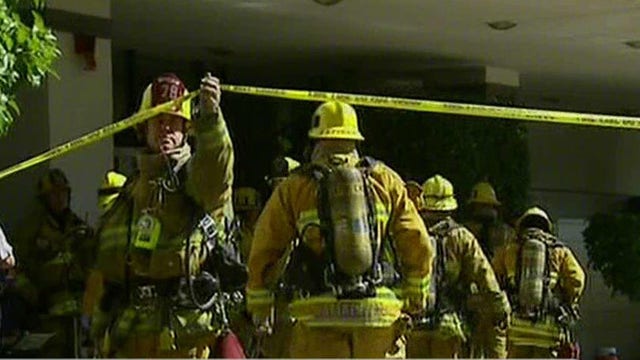ObamaCare's Threat to Firemen
Follow the government’s logic here on why volunteer firemen and emergency medical professionals may now need to get health insurance or face paying the mandate tax, even though they’re volunteers and even though their representatives say they rarely sign up to volunteer just to get benefits. And check out at bottom why other firefighters may see health premiums spike due to health reform’s Cadillac tax:
To stop employers from dumping workers onto the new state health exchanges so as to avoid offering health coverage, the health reform law established the “employer mandate.”
That rule says that large employers with more than 50 full-time workers must offer health insurance benefits to full-time employees or pay the government a mandate tax. The law defines “full-time” workers as anyone working at least 30 hours per week. “Large employers” are defined as any employer with 50 or more full-time equivalent workers.
But because the IRS uses hourly standards to determine whether workers are full time or not, the employer mandate could affect volunteer firemen and emergency services personnel. The law turns to the IRS to define what is a worker. The IRS has long maintained that for tax purposes, hours worked really matters, and that these volunteers are in fact workers. It’s true that some fire houses don’t have 50 or more workers. But the fear is the IRS could count multiple volunteer companies in one town as one department.
So, these volunteer firemen and emergency personnel who work for an average of 30 or more hours per week over an extended period of time could be taxed if they don’t buy health insurance.
That’s why the International Association of Fire Chiefs (IAFC) has already sent a letter to the head of the IRS, Danny Werfel, asking for these volunteer workers to be exempt. But the IRS is still deliberating. The statistics cited in his letter are eye-opening.
Chief William Metcalf, the letter writer, urged the IRS “to examine closely the negative and unintended impact it [the new law] may have on our nation’s volunteer firefighters and emergency medical personnel. There are approximately 750,000 volunteer firefighters in the United States–these volunteers represent 72% of all firefighters, and together they serve in 20,000 all-volunteer fire departments and 5,000 combination career-volunteer fire departments. Many communities rely exclusively upon volunteer fire departments for fire protection and emergency medical services.”
Chief Metcalf noted that these volunteers “may be assigned to multiple 12-and 24-hour shifts – easily allowing them to work in excess of 30 hours per week.”
The chief also noted that: “Prospective volunteers rarely, if ever, enter the volunteer fire service with an expectation of receiving health insurance. Generally, these volunteers are seeking a way to contribute to their communities, much like they would through other community volunteer opportunities.”
The chief is asking the IRS to expand its definition of “volunteer” to include volunteer firefighters and emergency medical personnel in fire departments classified as 501(c)(3) organizations. He’s also asking that “hours of service should not be counted when a volunteer merely has their pager or cell phone and are not responding to an emergency.”
But check out what Chief Metcalf also said: "If the IRS classifies volunteer firefighters and emergency medical personnel as employees in their final rule, fire departments may be unintentionally forced to comply with requirements that could force them to curtail their emergency response activities or close entirely.”
Forcing volunteer fire fighters and emergency personnel to get health insurance "could be a huge deal," said Rep. Lou Barletta, (R-Penn).
Health benefits for firemen could also face the health law’s Cadillac tax. That’s a 40% tax hitting high-benefit plans. For most taxpayers, the cut-off for defining these high-benefit plans will be $10,200 for individuals or $27,500 for a family, but those thresholds could be higher for emergency workers. Many health insurance plans offered to firefighters today may fall under the high-benefits plan category and be subject to the 40% Cadillac tax. That could spike premiums higher, since the Cadillac tax on these plans will likely be absorbed into the premium and passed on to the insured.




















